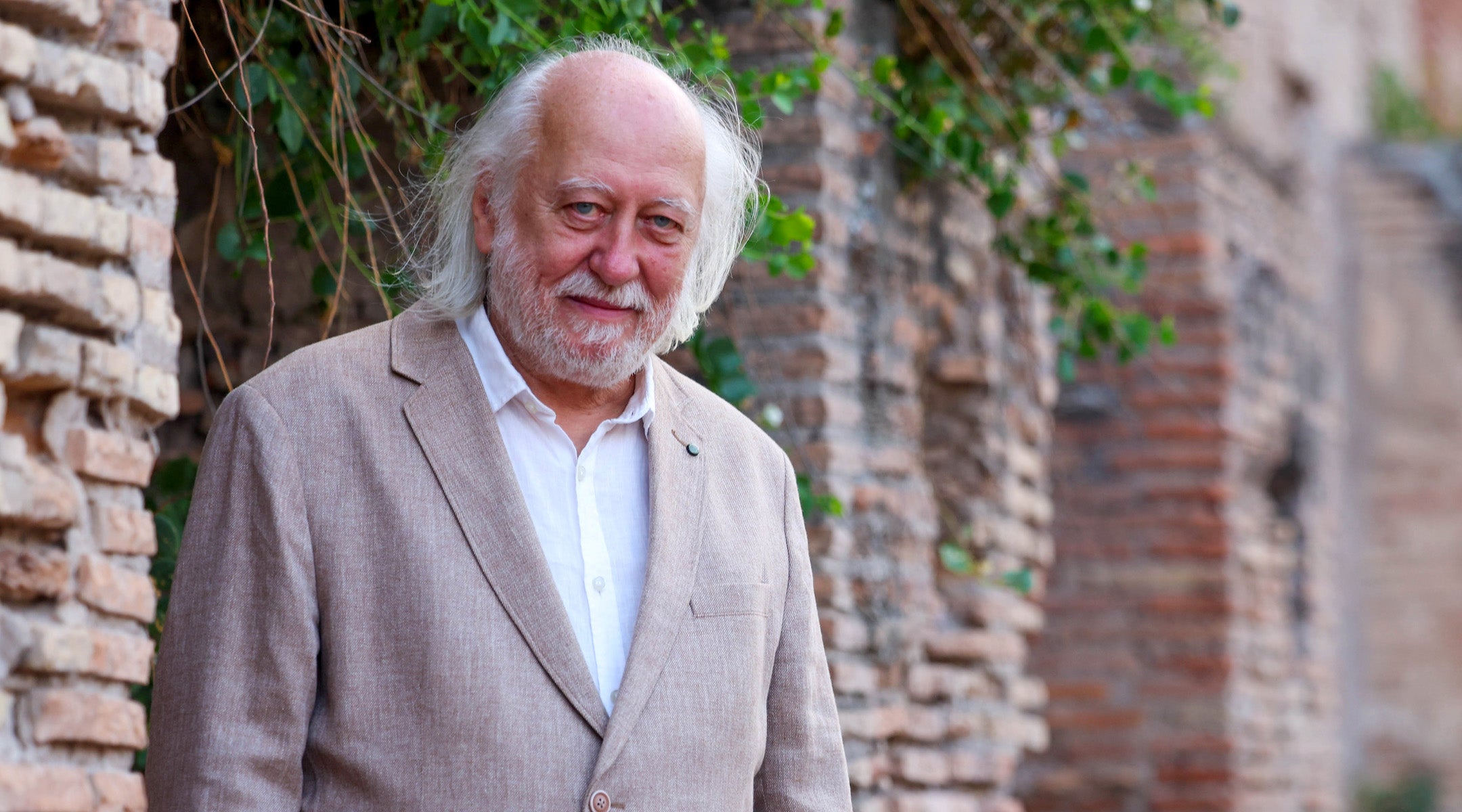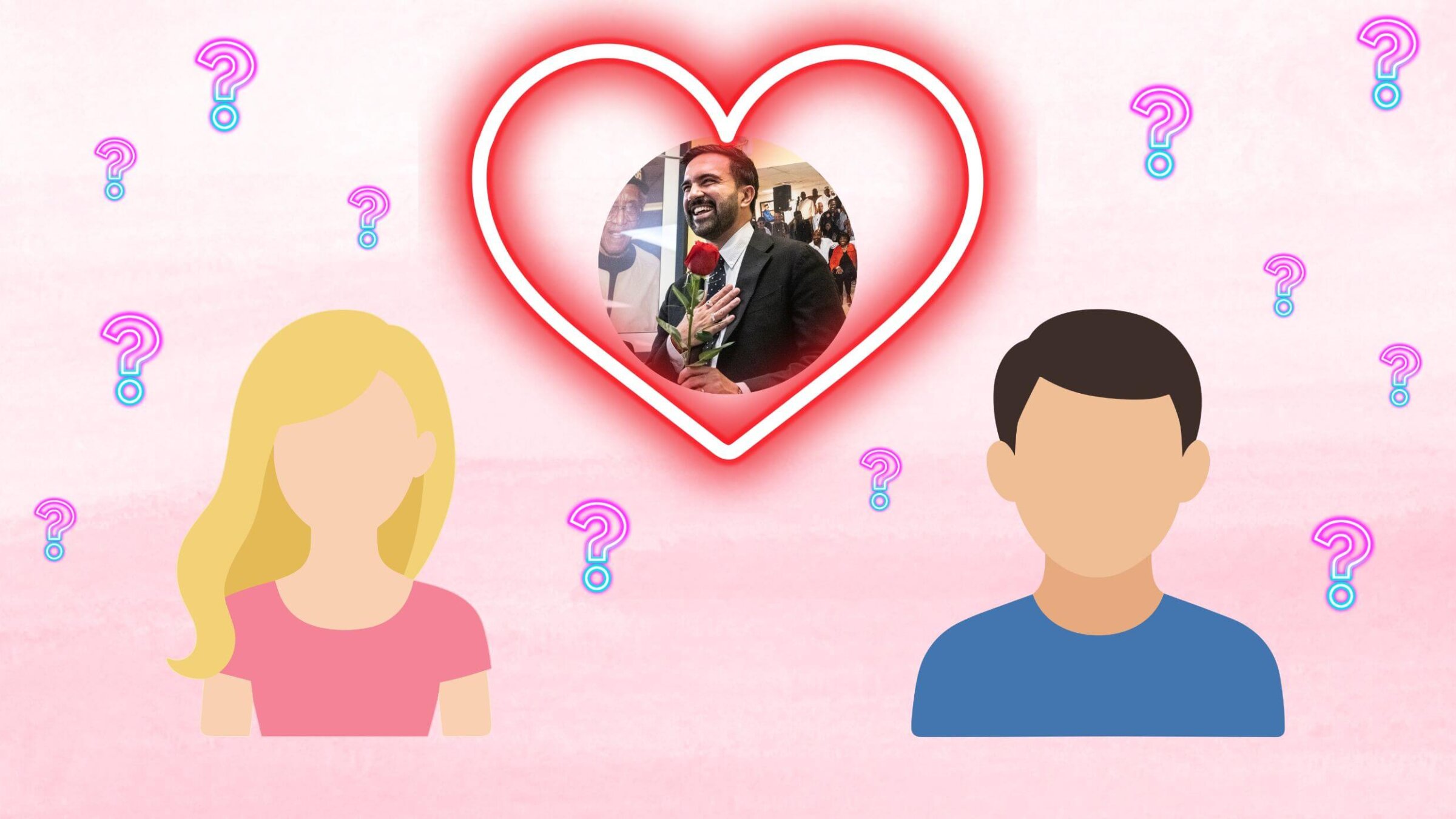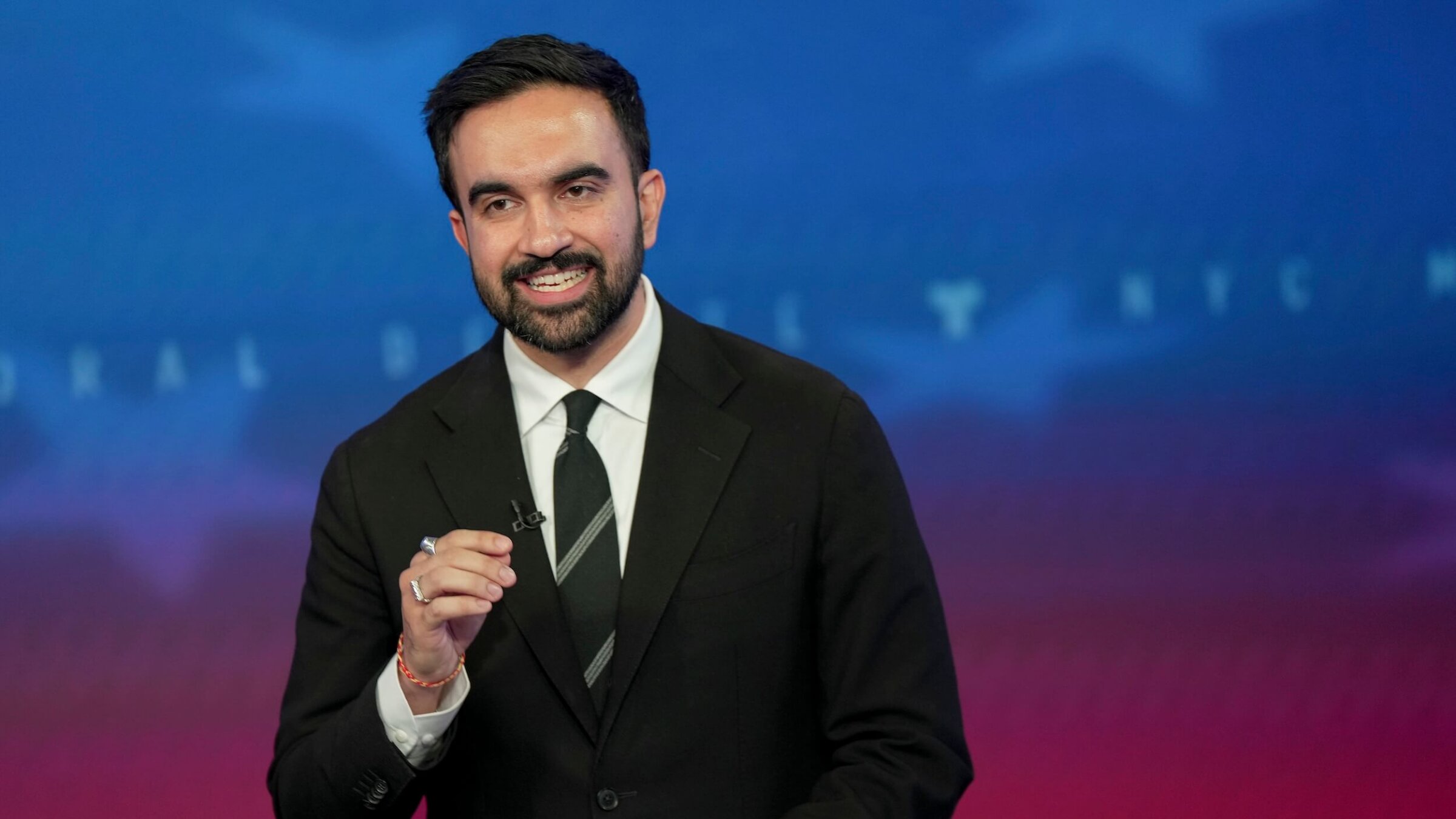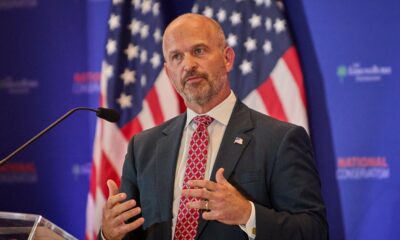Features
László Krasznahorkai, grim Hungarian author with hidden Jewish roots, wins literature Nobel

This year’s Nobel Prize for literature was awarded to a Hungarian writer whose work offers bleak visions of existence, and whose father hid his Jewish ancestry from him for much of his childhood.
László Krasznahorkai, the 71-year-old novelist and screenwriter, achieved international acclaim for formally daring books like “Satantango” and “The Melancholy of Resistance,” as well as a series of collaborations with the filmmaker Bela Tarr. He is often compared to master Russian novelists like Dostoyevsky and Gogol.
The Swedish Nobel jury called him “a great epic writer in the Central European tradition that extends through Kafka to Thomas Bernhard, and is characterized by absurdism and grotesque excess.” Another prominent champion of Krasznahorkai’s: the Jewish culture critic Susan Sontag, who praised the infamous 7.5-hour film adaptation of “Satantango” and deemed him a “master of the apocalypse.”
Krasznahorkai was born in 1954 in the small town of Gyula, near the Romanian border. As a child, he has said in interviews, he had no idea his father hailed from a Hungarian Jewish family. In 1931, as antisemitism was on the rise in Hungary but before the passage of formal anti-Jewish laws in the country, the author’s grandfather had changed their family name from Korin to the more native Hungarian-sounding Krasznahorkai.
“Our original name was Korin, a Jewish name. With this name, he would never have survived,” Krasznahorkai told a Greek interviewer in 2018. “My grandfather was very wise.”
When the author turned 11, he learned about his Jewish heritage for the first time. “In the socialist era, it was forbidden to mention it,” Krasznahorkai has said about his Jewish ancestry. “Korin” would later serve as the name of the protagonist, a suicidal Hungarian archivist, in Krasznahorkai’s acclaimed 1999 novel “War and War.”
Many of the author’s books, written in challenging postmodern style, are concerned with the effects of political turmoil and national upheaval on everyday citizens, from provincial farm workers to intellectuals. Some of his novels, including “Hersch 07769” and “Baron Wenckheim’s Homecoming,” have plots that deal directly with neo-Nazis.
In that 2018 interview, the author, an outspoken opponent of Hungary’s authoritarian prime minister Viktor Orban, also addressed his relationship to Judaism in characteristically pessimistic fashion.
“I am half Jewish,” he said, “but if things carry on in Hungary as they seem likely to do, I’ll soon be entirely Jewish.”
—
The post László Krasznahorkai, grim Hungarian author with hidden Jewish roots, wins literature Nobel appeared first on Jewish Telegraphic Agency.
Features
Dating in New York after Oct. 7 was already painful. Then came Zohran Mamdani

By David Berkowitz October 31, 2025
This story was originally published in the Forward. Click here to get the Forward’s free email newsletters delivered to your inbox.
I was considering getting back together with someone I dated earlier this year. When we reconnected this past summer, we hit it off again instantly. As we took in the sunset along the East River promenade, we reminisced about how easily the conversation had always flowed between us.
But then, she had to ask the question: “Who are you going to vote for?”
“I have to vote for Mamdani,” I said.
And that was the end of that. It became a Zohran Mamdani breakup. Or, Mamdani, the Democratic candidate for New York City mayor, torched the chances of us getting back together. I have him to blame — or thank — for that one.
Dating in New York City has never been easy. Dating here as a divorced 40-something Jewish dad seeking to meet other Jews in a post-Oct. 7 world, with an autocrat as president and a democratic socialist running for mayor, is almost impossible. There are so many political reasons to decide it’s not worth it to pursue a relationship with someone — even before determining how well you’d really get along.
When I resumed using dating apps this spring, after the end of my first long-term relationship following my divorce, I noticed that way more Jewish women in their 30s and 40s were listing their politics as “moderate” than I’d ever seen before. Many of them showcased Israeli flags or Stars of David in their bios or noted something positive about Israel or Zionism.
As I began chatting with potential interests, I learned that for some women, the aftermath of the Oct. 7 attack had transformed them from social liberals into supporters of President Donald Trump, due to Republicans’ perceived alignment with Israel’s interests. Others were liberal and perhaps even progressive in many of their views, but adamantly Zionist. They were thus much more conservative than me when it came to any question about Israel’s right to keep prosecuting a war with an exceptionally high civilian death toll.
Being back on the dating scene was a minefield. And then Mamdani’s stunning surge in the Democratic mayoral primary began.
I wasn’t ready to vote for Mamdani in the primary, instead ranking his Jewish ally, Comptroller Brad Lander, first. But the more I learned, the more comfortable I was with Mamdani’s vision and plans for New York. And he’s running for mayor of New York City, after all, not Tel Aviv.
Yet what I found: With many potential dates, even an allusion to Mamdani would halt any progress in its tracks.
Just this month — ironically, on Oct. 7 — I was having a pleasant back-and-forth with someone on Lox Club, the supposedly selective dating app for Jews with “ridiculously high standards.” I was increasingly eager to meet her: She was bright, pretty, well-traveled, and, most importantly, starting to find me hilarious.
She lived in Manhattan, like me. But when I asked about where she’s from, she said she’s from Long Island and that she’ll likely move back after the election if Mamdani wins.
Part of me was tempted to say whatever was needed to at least score a date. I could have done the texting version of smiling and nodding, perhaps validating her fears and saying I’m worried too. But I suspected I’d be wasting my time pretending we could accommodate differing outlooks on the city’s future. I texted her that I’m convinced a Mamdani administration would be way better for the city than most people fear. Still, it seemed our views were too divergent, as much as I’d have loved to meet her. She agreed, and I ruefully tapped “unmatch.”
In some ways, it seems frivolous to lament the plight of diaspora dating. The trauma experienced by Jewish daters in the comfortable environs of New York City can’t possibly be compared to the trauma of those who experienced the terror of Oct. 7, or the suffering of Palestinian civilians in Gaza during the subsequent war.
But there’s a real cost to Jews becoming more suspicious of one another. We risk isolating ourselves into smaller and smaller blocs, making it harder for us to connect once we find each other.
It also means that those who take a less reactive and more nuanced view wind up silencing themselves. How can I express that my heart was torn apart every time I heard first-hand accounts from freed hostages who returned to Israel — but that I also grieve deeply over the devastation in Gaza? How can I admit that former Gov. Andrew Cuomo has a good track record in connecting with Jewish voters and would likely reliably stand up to antisemitism, but be more compelled by Mamdani’s infectious love for New York City — and believe his criticism of Israel doesn’t make him an antisemite?
And how can I express my love for Israel — the idea of it and its people, though not necessarily its government — while voting for a candidate who questions Israel’s viability as a Jewish state?
For too many Jewish daters like myself, there is increasingly a sense that looking for someone who is also willing to take an open-minded approach to conflicting political truths is like praying for a miracle.
There was one promising moment, before my springtime interest and I decided not to renew our romance, that gave me hope. My date and I watched an episode of Real Time with Bill Maher, one of her favorite shows, together. I hadn’t seen his show in so many years that I was game to see why she enjoyed it so much.
I was surprised she could find humor in someone so critical of Trump, the president for whom she voted. She was surprised I could agree with a lot of the centrist views from Maher and his guests, most of which didn’t toe the progressive line. I told her that night that if things worked out between us, we’d have to invite Maher to our wedding.
That obviously didn’t happen. But I still think we need more moments like that — opportunities to appreciate both our commonalities and differences. I could envision another version of that relationship, where we end up listening to different podcasts and following different Instagram accounts, but still find areas where we can share similar perspectives and laugh at the same jokes.
I’m skeptical, and disheartened. But I’m still holding out hope for some future “Maher weddings” — even though with every swipe right or left, it feels increasingly naïve to think that. And yet, at heart, I’m a Jew, and I’ve studied enough of the history of the Jews to know that we’ve been through worse. We’ll get through this. But not before more anniversaries of Oct. 7 have passed.
David Berkowitz is the author of The Non-Obvious Guide to Using AI for Marketing and founder of the AI Marketers Guild.
The views and opinions expressed in this article are the author’s own and do not necessarily reflect those of the Forward. Discover more perspectives in Opinion. To contact Opinion authors, email opinion@forward.com.
This story was originally published on the Forward.
Features
Guest Article — A Canadian Jewish Traveller’s Money Playbook: Smarter FX & Safer Digital Finance for Israel Trips and Beyond
Written for readers of jewishpostandnews.ca
Whether you’re flying to Israel for a simcha, helping a student with a gap year, supporting family abroad, or making a donation to a cause you care about, the way you move money matters. Small choices around foreign exchange (FX), card settings, and digital security can quietly cost—or save—you hundreds of dollars per trip. This guest guide keeps things practical and non-hyped, with steps you can use right away.
1) Foreign Exchange: Focus on the all-in cost, not just the posted rate
Most leaks happen in three places: spreads (the markup over interbank), fees(ATM/operator/bank), and terminal settings (dynamic currency conversion, or DCC).
Winnipeg-to-Israel routine (works for most routes):
1. Always pay in the local currency. In Israel, choose ILS at the terminal; in the U.S. leg of a connection, choose USD. Decline DCC—letting the terminal convert to CAD usually costs more.
2. Separate rails by purpose.
○ Everyday spending: use a low/no-FX-fee card.
○ Larger cash or transfers: get a quote from a specialist and compare with your bank’s total cost (rate plus fees).
3. Stage big conversions. If the rate feels jumpy, split a large exchange into two or three tranches to average your price.
4. Carry a small cash float. Enough for taxis, tips, markets, and rural stops—then default to card for everything else.
5. Log your effective rate. Screenshot ATM and card receipts so you can see the actualCAD cost later.
Starting point to benchmark retail quotes: check posted rates, ID requirements, and pickup logistics via currency exchange in Ontario (useful if you or your student connect through Toronto/YYZ or spend time in the GTA before departure).
2) Israel-specific tips (simchas, tours, and longer stays)
● Hotels & car rentals: expect hefty holds on credit cards; keep extra available limit to avoid declines.
● Transit & payments: most urban vendors take cards, but small kiosks and markets may prefer cash; keep some small ILS notes.
● Receipts for donations & tours: store PDFs in one folder (cloud + offline) with a simple naming format (YYYY-MM-DD_vendor_amount). It saves time at tax season and for warranty/claim issues.
3) Tuition, program fees, and family support
Moving four- or five-figure sums? The spread matters more than you think.
● Shop the spread: get at least two quotes on the same day (bank vs. specialist).
● Confirm the lock: ask how long the rate-hold window lasts and the funds-received cut-off to avoid re-quotes.
● Proof of payment: save wire confirmations and the beneficiary’s receipt; mismatched names or references can delay admission or housing.
4) Tzedakah and cross-border donations (general guidance)
● Ask for the right receipt: Canadian tax receipts require a registered Canadian charity number; many Israel-based organizations partner with Canadian affiliates—ask before you give.
● Card vs. wire: cards are fast but may carry higher total cost on large gifts; wires are slower but can be cheaper for size.
● Record-keeping: store the acknowledgement email, PDF receipt, and card/wire confirmation together.
(This section is informational—always seek professional tax advice for your situation.)
5) If you hold a little crypto (optional)
Crypto isn’t for everyone, but if you already hold some—or your student does—treat it like an operations problem: keys, backups, and off-ramps.
Minimum viable safety
● Self-custody for long-term funds: use a hardware wallet; keep a small hot-wallet only for spending.
● Never store seed phrases in email or cloud notes. Write them down and secure them (consider splitting and sealing).
● On/off-ramp drill: before you travel, do a tiny test withdrawal to confirm access and speed; save TX IDs and exchange statements.
If you’re scaling exposure or want a security-first setup (custody architecture, recovery run-through, incident response), consider a session with crypto investment consultants.
6) One-page checklists you can save
Travel Day (Israel or U.S. connection)
● Card set to pay in local currency (decline DCC)
● Small test purchase completed on arrival
● Shortlist of ATMs with known operator fees
● Cash envelope for day-one expenses
● Offline copies of bookings + insurance on your phone
Large FX Transfer (tuition/deposit/donation)
● Two quotes captured (bank vs. specialist)
● Rate-lock window and cut-off confirmed
● Screenshots with timestamps saved
● Wire confirmation + beneficiary receipt filed
Crypto Hygiene (if applicable)
● Hardware wallet initialized; seed written and stored safely
● 2FA keys offline; password manager updated
● Test withdrawal completed; TX IDs logged
● Quarterly: verify balances, rotate credentials, re-test recovery
jewishpostandnews.ca serves readers with local, diaspora, and Israel coverage—readers who routinely plan Israel trips, support causes, and help students abroad. Practical money ops reduce friction on exactly those journeys.
Bottom line (and a small disclaimer)
You don’t need to “time the market.” Use the cheapest reliable rail for each job, avoid DCC, stage large conversions, and keep clean records. If crypto is in your mix, run it with production-grade safety. This article is informational only, not financial, tax, or investment advice; consult qualified professionals for your circumstances.
Features
Why some Satmar Hasidic leaders endorsed Zohran Mamdani as mayor, stunning many Jewish voters

By Jacob Kornbluh November 2, 2025
This story was originally published in the Forward. Click here to get the Forward’s free email newsletters delivered to your inbox.
A surprise endorsement of Zohran Mamdani by a faction of the Satmar Hasidic community has set off a firestorm within the community, exposing sharp internal divisions about the Democratic nominee struggling to earn the trust of many Jews in the race for New York City mayor.
On Sunday, Rabbi Moshe Indig, a political leader of the sect led by Rabbi Aaron Teitelbaum from Kiryas Joel and known as the Ahronim, publicly declared his support for Mamdani at a meeting he organized in Williamsburg.
But within hours, three prominent leaders of the Ahronim sect issued a joint statement rejecting the move and announcing their own endorsement of former Gov. Andrew Cuomo, who was the community’s preferred candidate during the Democratic primary.
Indig, a leading political figure in the Ahronim camp who had praised Mamdani earlier in the campaign as “very nice, very humble” and “not antisemitic,” has not commented publicly since the backlash unfolded.
Why it matters
For Mamdani, who has sought to defuse criticism of his anti-Israel statements through quiet outreach to Haredi leaders, the turmoil reflects both his progress and the limits of his effort.
The approximately 80,000 voters in Brooklyn’s Haredi communities, where rabbinic dictates about ballot choices lead to a reliable bloc of support, are particularly sought after by candidates. The Satmar community is known for its staunchly anti-Zionist religious ideology.
If Mamdani, a democratic socialist and strident critic of Israel who leads by double digits according to recent polls, wins Tuesday’s election, it would mark the third consecutive mayoral race in which Ahronim’s political arm has demonstrated its political influence by backing the eventual winner, while other Hasidic blocs supported rival candidates.
In 2021, they endorsed Eric Adams over Andrew Yang, who was favored by most leading Hasidic sects. And in 2013, they backed Bill de Blasio, who narrowly avoided a runoff in the Democratic primary by just 5,000 votes, while the Zalonim and other groups supported Bill Thompson, then seen as the frontrunner.
The move to endorse Mamdani came days after Satmar, including the larger sect led by Rabbi Zalmen Teitelbaum from Williamsburg and known as the Zalonim, declared that they would not endorse any candidate for mayor while also condemning the “fear campaign” and attacks on Mamdani. They also met with Cuomo on Wednesday night, accompanied by Mayor Eric Adams, but ultimately declined to back him.
In an open letter to their followers published on Wednesday, the Satmar leadership highlighted Mamdani’s gestures that specifically addressed their concerns. They noted that the Democratic nominee has said he would work to protect Hasidic yeshivas that face scrutiny for failing to meet state education standards and promised that Hasidic families would benefit from his proposals to expand affordable housing and establish universal childcare.
If Mamdani wins, he would become the first Muslim mayor of New York City, home to the largest concentration of Jews in the U.S.
Cuomo still enjoys broad support among Jewish voters, who make up an estimated 10% of the general election electorate. A recent Quinnipiac poll of 170 Jewish voters showed Cuomo with 60% of their support and Mamdani with 16%, while a separate Marist poll of 792 likely voters — including an 11% sample of Jewish voters — found Cuomo with 55% and Mamdani at 32% among Jewish respondents.
Cuomo also has the backing of most Orthodox groups that helped swing the 2021 mayoral race for Adams, including the Flatbush Jewish Community Coalition and the two largest voting blocs in Borough Park — Bobov and Belz. The remaining 25 Hasidic sects and yeshivas in Borough Park have declined to issue a recommendation in the current race.
This story has been updated to include news of a rift in the community after the Mamdani endorsement.
Jacob Kornbluh is the Forward’s senior political reporter. Follow him on Twitter @jacobkornbluh or email kornbluh@forward.com.
This story was originally published on the Forward.












